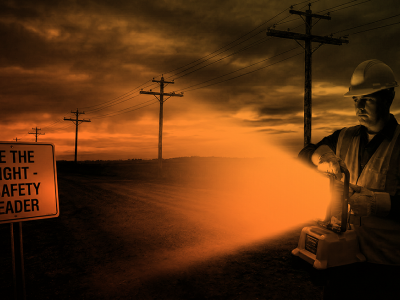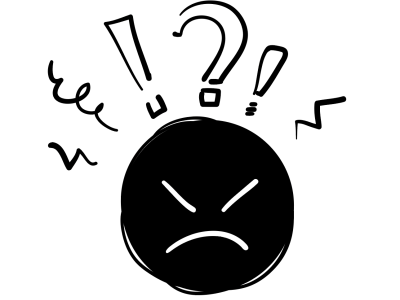David McPeak, CUSP, CIT, CHST, CSP, CSSM

David McPeak, CUSP, CIT, CHST, CSP, CSSM
About the Author: David McPeak, CUSP, CIT, CHST, CSP, CSSM, is the Director of Education for Utility Business Media’s Incident Prevention Institute (ip-institute.com) and the author of “Frontline Leadership – The Hurdle” and “Frontline Incident Prevention – The Hurdle”. He has extensive experience and expertise in leadership, human performance, safety and operations. McPeak is passionate about personal and professional development and believes that intrapersonal and interpersonal skills are key to success. He also is an advanced certified practitioner in DISC, emotional intelligence, the Hartman Value Profile, learning styles and motivators. Reach him at david@utilitybusinessmedia.com.

Be the Light
“This little light of mine, I’m gonna let it shine, let it shine, let it shine, let it shine.” Light. We literally cannot live without it. In addition to sustaining life, light can be used in various other ways, including helping us to see clearly and sanitizing unsafe conditions. That sounds a lot like what […]
Verbal and Physical Triggers
Think before you act. That may be the single best piece of timeless wisdom we ever receive, especially when it comes to safety. And while it’s a simple concept, it’s not always our natural response, potentially presenting difficulties during job execution and task performance. Keeping in mind that safety tools are designed to give us […]

Your Response Matters … A Lot
How you respond to other people and events matters. It matters a lot. Your responses – both as a leader and a member of the TEAM (Together Everyone Accomplishes More) – impact every part of your life, including culture, relationships and safety. Let’s start with this: “Responding” is a task. To perform the task well, […]
Prioritize Safety Now So It Becomes a Value Before It’s Too Late
We typically excel at safety – after an incident. My question is, can we get it right before an incident occurs? And if so, how? Keeping in mind that you probably learned a stove could be hot by touching one as a child, let’s consider another question: Is it possible for us to develop safety-related […]
The Good Shepherd
If you’re like me, you’ve only encountered sheep at a petting zoo, so here’s a fun fact about them: sheep have rectangular pupils. I included that to make sure you learn something today and to challenge us to explore other sheep characteristics and what we can learn from sheep-shepherd relationships. In doing so, we’ll use […]

Bad Attitudes and How to Handle Them
One of the questions I’m most frequently asked during leadership classes is how to handle people with bad attitudes. So, I’d like to take this opportunity to share some highlights from those discussions. I will remind you that leadership is much more of an art than a science. There is no perfect roadmap that shows […]
Win and Win Again: The Blueprint for Repeating Safety Successes
The primary goal of safety is to prevent injuries. We achieve that goal in most cases, though our rare failures often overshadow our frequent successes. And while it’s essential to analyze failures and apply lessons learned, it’s equally if not more important to highlight and replicate our successes. So, let’s explore how to define success, […]
Make It Safe To …
A trainer, speaking to trainees at the start of class: “Welcome, class. You are encouraged to ask questions and participate. Remember, if you have a question, 15% to 20% of the class probably has the same question.” A trainee, a few hours later: “I have a question.” The trainee then asks the trainer a question […]
Preventing SIFs with Above-the-Line Work Planning and Execution
Are the things that hurt people the same as the things that kill people? Should safety focus on preventing serious injuries and fatalities (SIFs)? In this article, I’m not going to attempt to answer either of those questions. Instead, I’m going to do two other things. First, I’ll provide you with insights and resources that […]
START Work Authority
Stop-work authority is crucial in our industry. Understand me when I say this: If people aren’t using stop-work authority, they don’t have that authority even if it’s promoted on a bulletin board somewhere. With that said, I want to propose START (self, task, assess, reduce, thrive) work authority to reduce the number of times you’ll […]

